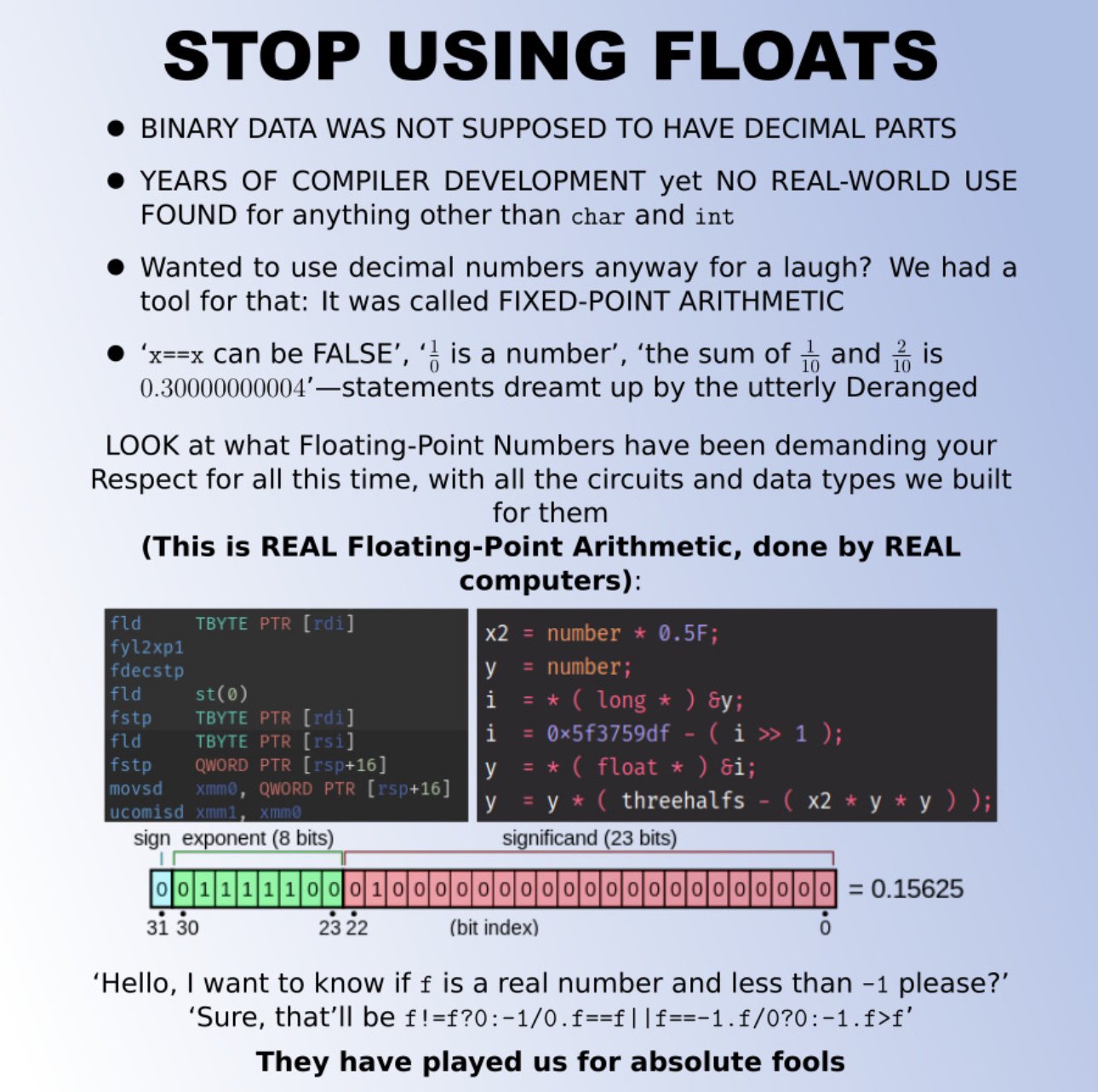this post was submitted on 26 Feb 2024
757 points (95.8% liked)
Programmer Humor
19522 readers
167 users here now
Welcome to Programmer Humor!
This is a place where you can post jokes, memes, humor, etc. related to programming!
For sharing awful code theres also Programming Horror.
Rules
- Keep content in english
- No advertisements
- Posts must be related to programming or programmer topics
founded 1 year ago
MODERATORS
you are viewing a single comment's thread
view the rest of the comments
view the rest of the comments

It doesn't have to "error" if the result case is offered and handled.
Float processing is at the hardware level. It needs a way to signal when an unrepresented value would be returned.
My thinking is that a call to the safe division method would check after the division, whether the result is a
NaN. And if it is, then it returns an Error-value, which you can handle.Obviously, you could do the same with a
NaNby just throwing an if-else after any division statement, but I would like to enforce it in the type system that this check is done.I feel like that's adding overhead to every operation to catch the few operations that could result in a nan.
But I guess you could provide alternative safe versions of float operations to account for this. Which may be what you meant thinking about it lol
I would want the safe version to be the default, but yeah, both should exist. 🙃